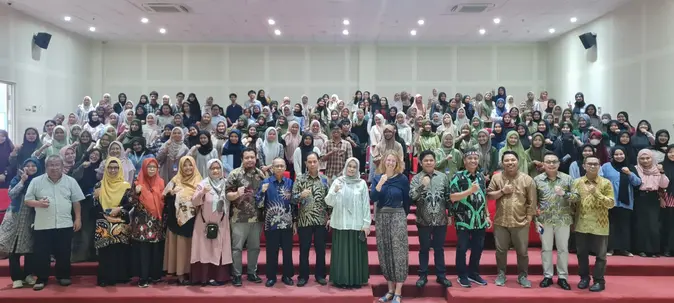Collaboration planned between the Department of Science Education and two Indonesian universities
During her visit to Indonesia in December 2024, Professor Dr Yelva Larsen, of the University of Negeri Makassar, delivered a guest lecture that attracted significant interest. The lecture was delivered to faculty members and students from the Faculty of Education, and it focused on the digital teaching-learning package developed as part of DiKuLe. This package is known as the 'Wild Bee Identification App', and it is already being utilised by several German universities and schools in a joint citizen science project. From 2025, Indonesian students will be involved in the project in collaboration with science education students, and ideas will be exchanged in joint online meetings.The Indonesian islands of Sulawesi and Sumatra will be the location for the setting up of nesting aids, as has been done in Germany. The aim is to make a comparison between the two locations in terms of species diversity and population density of wild bees. This is of particular interest due to the biogeographical separation of the two islands by the so-called Wallace Line. While species endemic to Asia are present on Sumatra, Sulawesi is characterised by species that are found in Australia.The identification and comparison of species as a scientific method enables student teachers to participate in a research project and demonstrates the practical implementation of science lessons through an international citizen science project.

